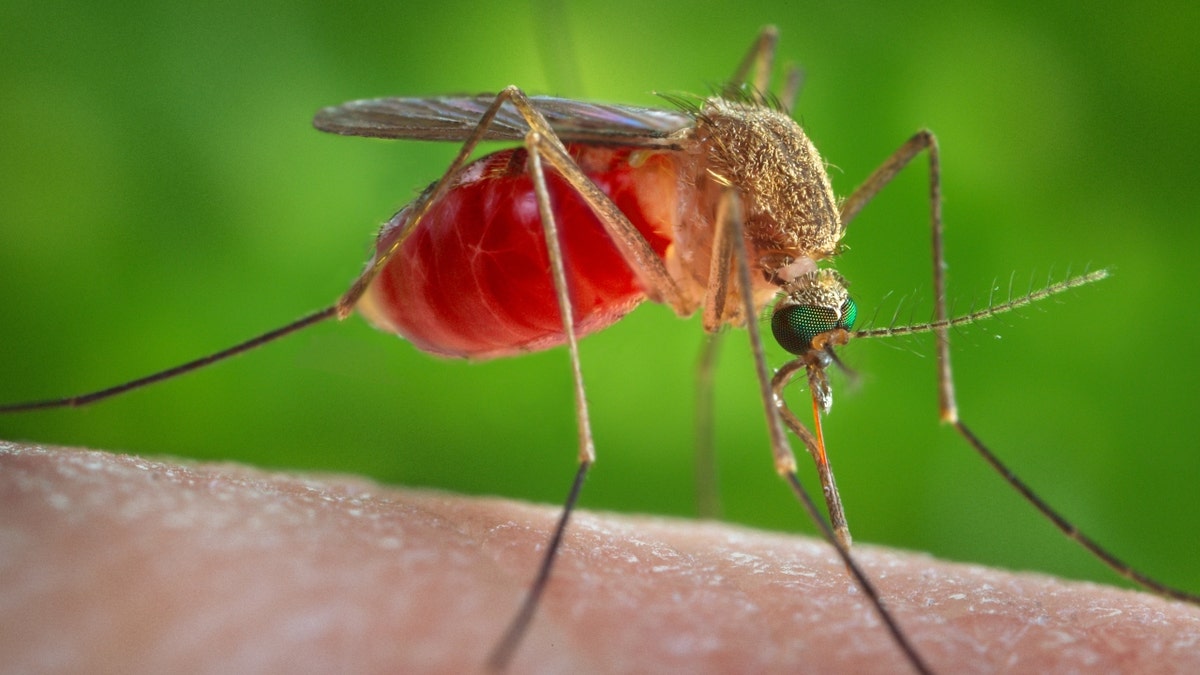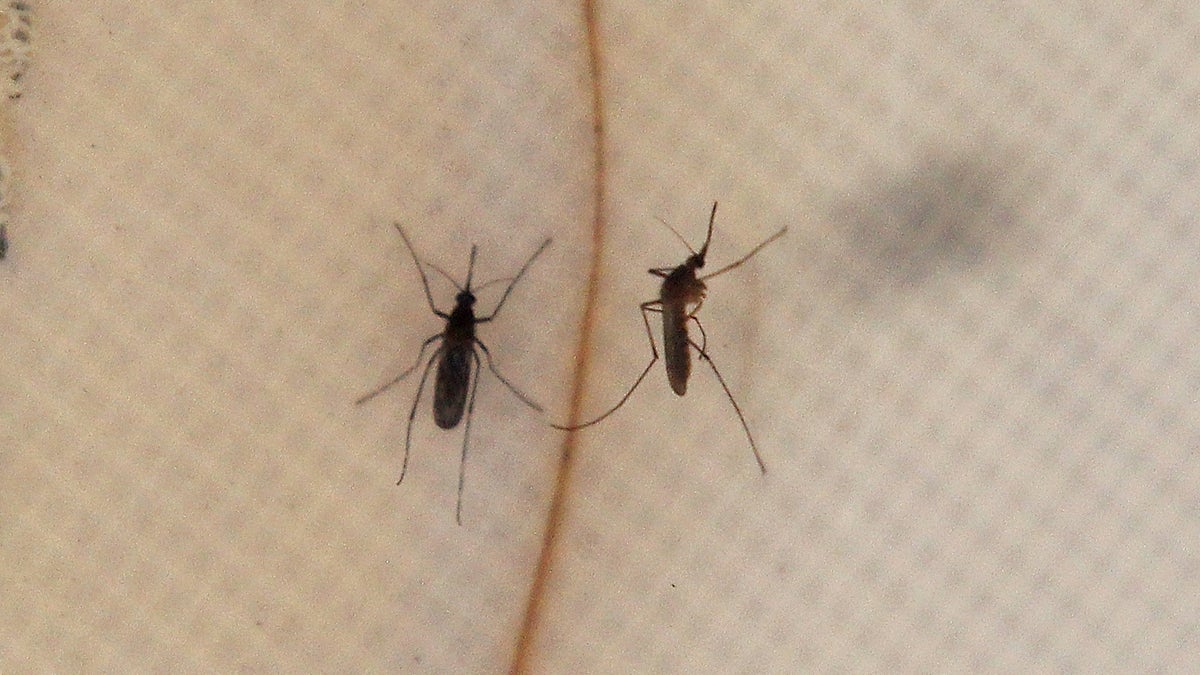NEWYou can now listen to Fox News articles!
Kansas health officials say they are monitoring six West Nile virus cases this year and five of them have been considered serious.
As of Aug. 15, the Kansas Department of Health and Environment (KDHE) shows three cases located in the north-central Kansas region and three more in the south-central part of the state.
The KDHE says that five of the six cases are classified as neuroinvasive. Jill Bronaugh, a KDHE spokesperson, said non-neuroinvasive cases are less severe, according to a report by KSNT.
Bronaugh explained that infected subjects with non-neuroinvasive cases have flu-like symptoms and neuroinvasive cases are much more severe.
MOSQUITO-BORN DENGUE FEVER CASES SURGE AT POPULAR US VACATION DESTINATION
“Neuroinvasive cases are those in which there is clinical evidence of involvement of the central nervous system in the disease process,” Bronaugh said. “These cases are generally more severe and include symptoms such as high fever, inflammation of the brain and/or the tissue surrounding the brain, disorientation, paralysis or muscle weakness, numbness, and vision loss. These cases generally have a longer recovery time and require more extensive medical intervention.”
According to a report by the Kansas Department of Health and Environment (KDHE), the numbers are still below last year’s totals, but some health officials are warning that the risk will rise as mosquito activity peaks in late summer.
Last year, Kansas recorded 64 infections, including four deaths, according to KDHE data.
MOSQUITO-BORNE VIRUS SPREADING THROUGH CHINA CAUSES HIGH FEVER, JOINT PAIN

KDHE currently has a West Nile virus dashboard, which is updated on Fridays during the surveillance season, July through September.
According to the CDC, WNV is commonly spread through bites from infected mosquitoes during mosquito season starting in the summer.
Peak numbers are from August to early September, the CDC website reports, and yearly about 2,000 people in the U.S. are diagnosed, although those numbers are low due to under-reporting caused by mild symptoms.
The CDC says typical symptoms such as high fever, headache, neck stiffness, stupor, disorientation, coma, tremors, convulsions, muscle weakness, vision loss, numbness, or paralysis tend to show up 2–6 days after being bitten by an infected mosquito.

Unfortunately, there are no medicines available to treat West Nile, but the CDC notes that most who are infected recover.
The CDC says that most people infected with the West Nile virus “are believed to have lifelong immunity or protection from getting the disease again.”
Health officials have urged residents to use precautions when going outdoors to protect themselves from mosquito bites. Officials suggest using insect repellent, wearing long sleeves and pants outdoors, and eliminating standing water around homes where mosquitoes can breed.
Read the full article here













